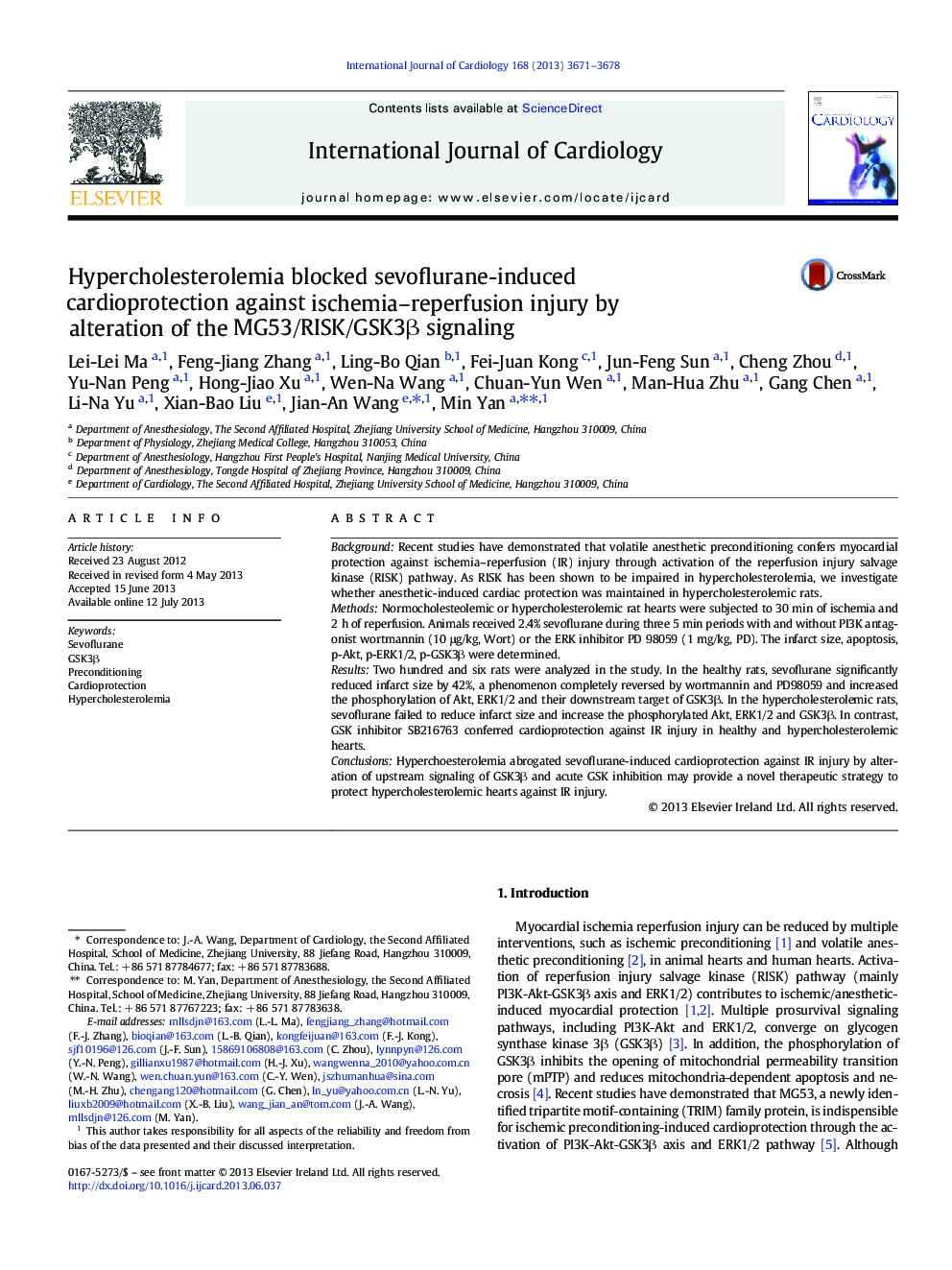| Article ID | Journal | Published Year | Pages | File Type |
|---|---|---|---|---|
| 5973833 | International Journal of Cardiology | 2013 | 8 Pages |
BackgroundRecent studies have demonstrated that volatile anesthetic preconditioning confers myocardial protection against ischemia-reperfusion (IR) injury through activation of the reperfusion injury salvage kinase (RISK) pathway. As RISK has been shown to be impaired in hypercholesterolemia, we investigate whether anesthetic-induced cardiac protection was maintained in hypercholesterolemic rats.MethodsNormocholesteolemic or hypercholesterolemic rat hearts were subjected to 30 min of ischemia and 2 h of reperfusion. Animals received 2.4% sevoflurane during three 5 min periods with and without PI3K antagonist wortmannin (10 μg/kg, Wort) or the ERK inhibitor PD 98059 (1 mg/kg, PD). The infarct size, apoptosis, p-Akt, p-ERK1/2, p-GSK3β were determined.ResultsTwo hundred and six rats were analyzed in the study. In the healthy rats, sevoflurane significantly reduced infarct size by 42%, a phenomenon completely reversed by wortmannin and PD98059 and increased the phosphorylation of Akt, ERK1/2 and their downstream target of GSK3β. In the hypercholesterolemic rats, sevoflurane failed to reduce infarct size and increase the phosphorylated Akt, ERK1/2 and GSK3β. In contrast, GSK inhibitor SB216763 conferred cardioprotection against IR injury in healthy and hypercholesterolemic hearts.ConclusionsHyperchoesterolemia abrogated sevoflurane-induced cardioprotection against IR injury by alteration of upstream signaling of GSK3β and acute GSK inhibition may provide a novel therapeutic strategy to protect hypercholesterolemic hearts against IR injury.
